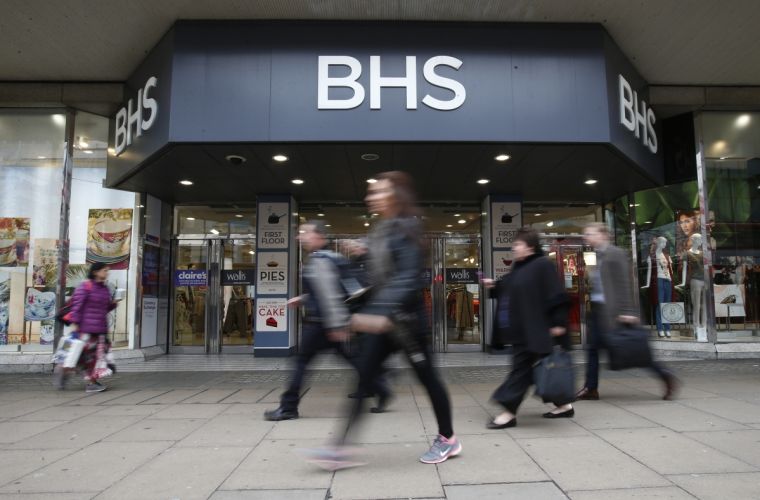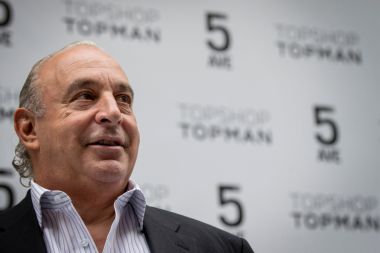BHS collapse: When sorry seems to be the hardest word

'What have I got to do to be heard?
What do I say when it's all over?
Sorry seems to be the hardest word.'
The 11,000 people facing unemployment after the collapse of BHS would be well justified in singing Elton John's infamous song of heartbreak at the top of their lungs, as revelations about how the company was run continue to leak.
When I listened to owner Dominic Chapell as he was questioned by MPs last week on what happened in the year he ran the British retail outlet, I began to feel nauseous.
While refusing to say just how much he personally profited from his little venture into retail, although it's certainly in the millions, he also shrugged off enquiries into the £1.5 million loan which was taken out of the business and given to his father. The ex-chief executive of BHS, Darren Topp claimed that when he challenged this, Chappell threatened to kill him. An allegation which of course, Chappell denies.
Instead, Chapell preferred to lay blame at the retail billionaire giant Sir Philip Green who sold BHS to him for £1. Now, I'm not going to defend Green, far from it; the TopShop owner has more than enough to answer for. His hugely successful company is 'owned' by his wife who just happens to be a resident of that lovely tax haven Monaco. In fact, in 2005 she received her own dividend of £1.2 billion from the now-bankrupt BHS.

Today, Philip Green is due to face his own grilling from MPs.
After an interview during which Chappell blame-shifted, denied allegations and dodged questions, Michelle Thompson, an independent MP, asked him: 'Knowing what you know now, is there anyone you would like to apologise to?'
While stating that what happened was a travesty, and avoidable, as well as saying how personally upset he was, he didn't actually use the magic word 'sorry'.
Thompson asked him if he'd just made an apology, to which Chapell said, 'Yes'.
Whatever did or didn't happen in the last year of trading, you might think he'd have something slightly humbler to offer to his employees, particularly considering the £571m pension deficit. You might hope, albeit naively that he takes some responsibility for the huge losses and uncertainty which individuals and families are now facing.
But he can't bring himself to actually apologise. He just can't.
Or worse still, perhaps thinks he has said sorry, when it's clear to everyone else that he didn't.
Maybe his life is so deeply entrenched in denial, he can no longer knows what is true and what is not.
We see it all the time. Politicians who change their minds, who make mistakes, spinning the story just to come out of it with their reputation vaguely intact. Unfaithful celebrities who only fall to their knees in shame when cornered with the unequivocal facts.
Whether the allegations are true or not, Chappell did still hold overall responsibility for BHS. So far, I have failed to see him have the courage to look at the collapse with brutal honesty and ask himself what he could have done better.
Because once you say sorry, you have to admit that whatever happened, was at least in part, your fault. You have to acknowledge the mess you've caused. And that hurts. It might even mean you lose out on something or have to let go of what you wanted. If Chappell were to apologise and admit his role in the bankruptcy, who knows what further investigation he would face.
Yet, if you never get to that point, if you can't take any ownership over what has happened and admit your own brokenness, there's no way you can change.
Without humbly looking at the reality of what we are, we'll never grow. Change is often birthed from a death of sorts. That can be the death of what we thought we were. It is only from that point we can then ask: who do I authentically want to be, and allow God's merciful spirit to transform us.
Maybe many of our leaders don't get what grace is, because if they did sorry would be a much easier word to say.











